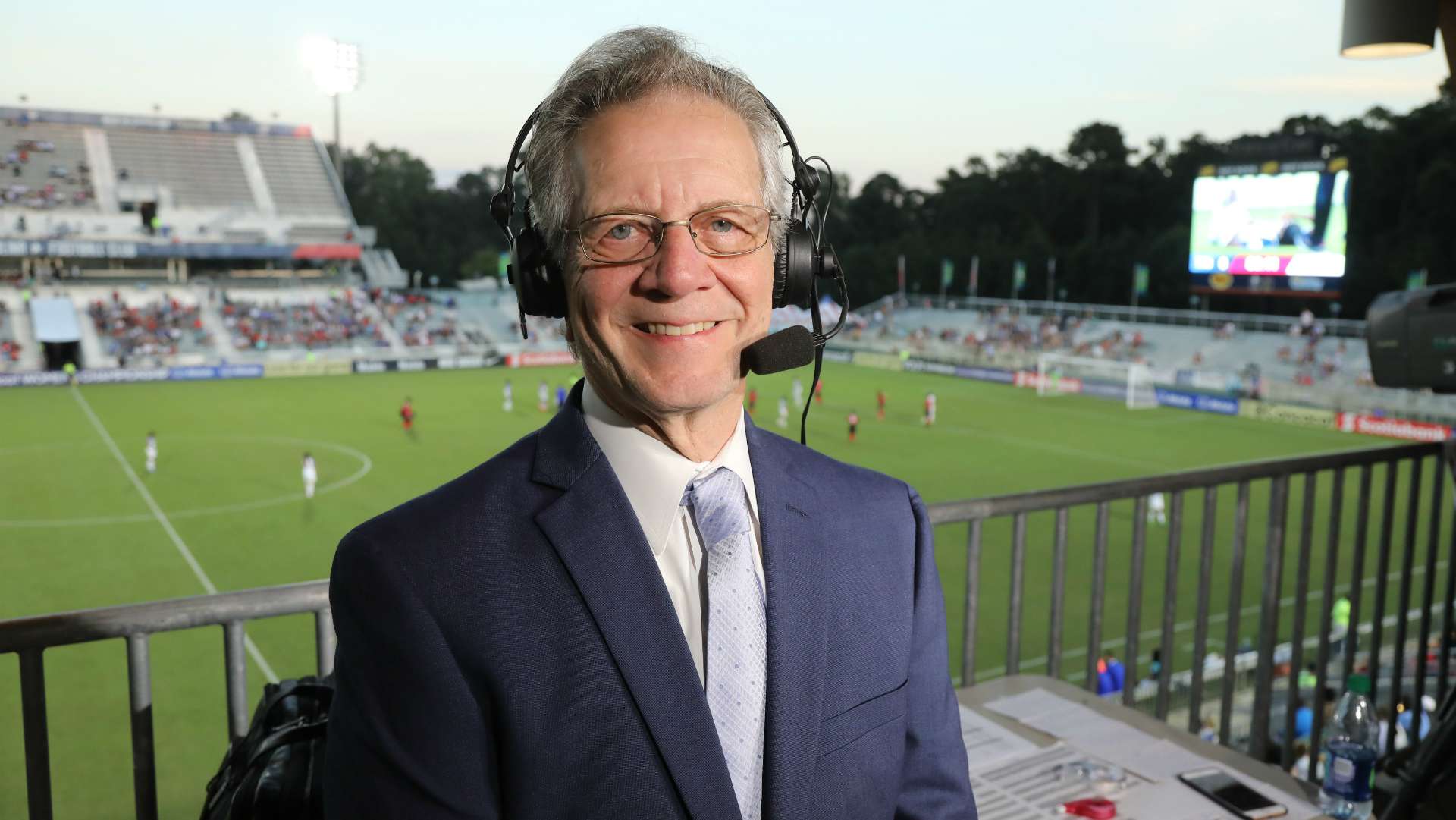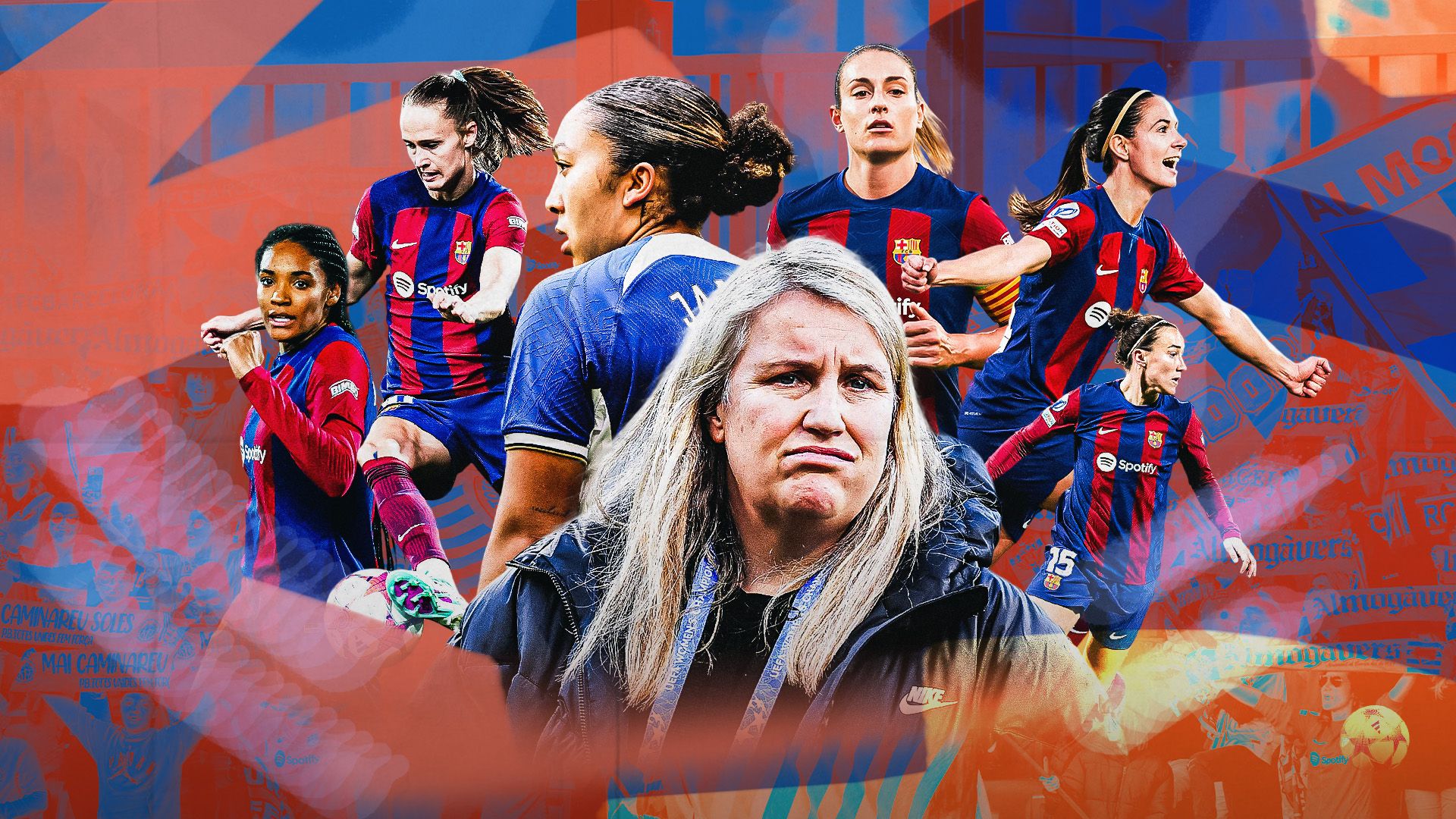JP Dellacamera's best call wasn't verbose. It wasn't drawn out. In fact, it really can't get more simple than his call of the winning penalty in the 1999 Women's World Cup.
"All I said was ‘Goal.' In my goal call I didn’t say “They win the World Cup.’ I just set the stage, one word and laid out," Dellacamera said this week. "To me that was my signature call, and it’s the way I’ve always thought of announcing. Don’t be bigger than the moment."
The legendary broadcaster has been the soundtrack for many American soccer moments like Brandi Chastain's historic kick, but this weekend he's getting a moment of his own. Dellacamera is being honored at Saturday's National Soccer Hall of Fame ceremony as this year's Colin Jose Media Award winner.
It's been a long road for Dellacamera, one he's careful to note isn't coming to an end. After calling the Concacaf Women's Championship this week, he's the odds-on favorite to be the voice of the 2019 World Cup in France where he could call another United States victory like the one in 1999. Few would've expected him to go from calling minor league hockey in the 1980s to becoming one of the most recognizable voices in American soccer.
That's what happened, though, with a first step that seems unbelievable now. Legendary Pittsburgh Penguins announcer Mike Lange was approached by Anheuser-Busch-owned Bud Sports to broadcast indoor soccer but passed the chance on to a young Dellacamera. While he continued calling hockey games, including becoming the local TV voice of the NHL's Atlanta Thrashers, the link to soccer always has been the strongest.
"Initially that’s what I wanted to be was a hockey announcer. I was doing minor-league hockey and got a break doing indoor soccer. Indoor soccer led to outdoor soccer," he said. "Even though I’ve done other things since - I’ve done basketball and hockey with the Thrashers - my living has really been 90 percent soccer and now it’s pretty much 100 percent soccer."
Being all soccer all the time wasn't an option Dellacamera's career was getting started. Soccer matches on television were rare and often time-shifted to air at odd times. Even when the sport became more prominent and Dellacamera had been a regular, he missed out on a pair of World Cups, calling games in 2010 and 2014 on ESPN Radio rather than on television after ESPN opted to use a crew made entirely of British play-by-play voice.
Some American fans, many of whom have fought for local soccer development for years, are still steamed about the decision. The 66-year-old, however, takes a more pragmatic approach.
"I never think about that stuff. I do this because I love this," he said. "I don’t do it because of money, recognition. I do it because I love it. If awards come to me, that’s fantastic. I never think, this is something I should have gotten or I deserve. I’m not wired that way. Through my career, I’ve never asked anyone why they didn’t use me on something, just like I never asked them why they did."
That response shows the elements of Dellacamera's character that viewers don't get to see, according to John Strong, another play-by-play commentator in Fox's stable.
"It’s sort of mind-blowing how many times he has gotten a remarkably short stick in a certain situation," Strong said. "He probably should be more angry than he is. He probably should be more resentful than he is for the opportunities that were taken away from him. But he always plugged away and he did his job and he never lost that niceness about him."
Strong, an American who grew up watching and listening to Dellacamera, noted that things could've been awkward between the two when Strong joined Fox with both men jockeying for some of the same assignments. Instead, the young commentator found that Dellacamera was more than willing to help, not by telling him what to do but rather sharing his own personal experience in situations where it might apply.
Dellacamera utilized the same style in assisting Tony Meola, a former U.S. goalkeeper now working in broadcasting, transition from 18-yard box to broadcast booth. Meola says he never would have been assigned games at the 2018 World Cup without the guidance of the veteran broadcaster.
"It’s been three or four years of learning every single day what the business entails, what it takes to be prepared and what it takes to get to a point where you feel comfortable enough that you can do a good job for the game," Meola said. "Until I actually did it, you never really know. You think you know, but he showed me different methods, different ways of studying, different ways of prepping and if it wasn’t for him I don’t know that I would’ve been chosen to go to the World Cup."
He remembers a particularly stressful situation prior to the opening match of this summer's tournament between Russia and Saudi Arabia when there was an issue with the world feed and a flurry of activity in the broadcast booth. Already nervous ahead of the biggest broadcast of his career, Meola was inspired by Dellacamera's calm.
"This is our first live hit of the World Cup in the stadium and JP were as calm as if he were on his couch watching his favorite movie," Meola said. "I was a little bit nervous. You’re getting ready to go out in the entire country. He was calm. I’m trying to take his lead because he’s been here before and he’s seen all this. Had he been rattled at all, I probably would’ve been rattled myself."
Dellacamera has been through plenty of frustrating moments during his career but said it's been far more positive than negative. As he's honored this weekend, the moments like Chastain's goal, Paul Caligiuri's 'shot heard round the world' in 1989 and all the World Cups far outweigh any missed opportunities for American voices or technical difficulties on site.
"I don’t know anybody who’s been an announcer for even 20 years let alone much more than that, I don’t know anyone that could say, 'No, everything’s been great. I never had a a hiccup in the road.’" Dellacamera said. "I think anybody that says that is probably lying. I think if you last as long as I did, I think that means the good has outweighed the bad, and I have no complaints, I have no regrets. it’s been a great career, and I’m not done yet."



.jpg?auto=webp&format=pjpg&width=640&quality=60)
.jpg?auto=webp&format=pjpg&width=640&quality=60)